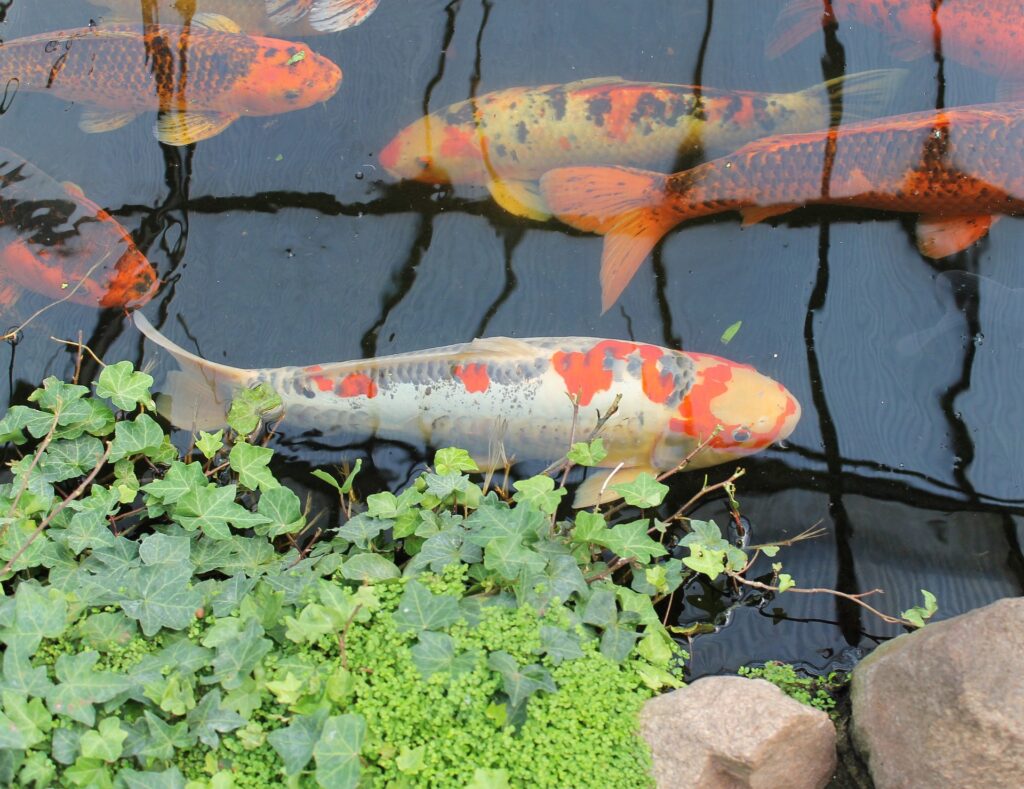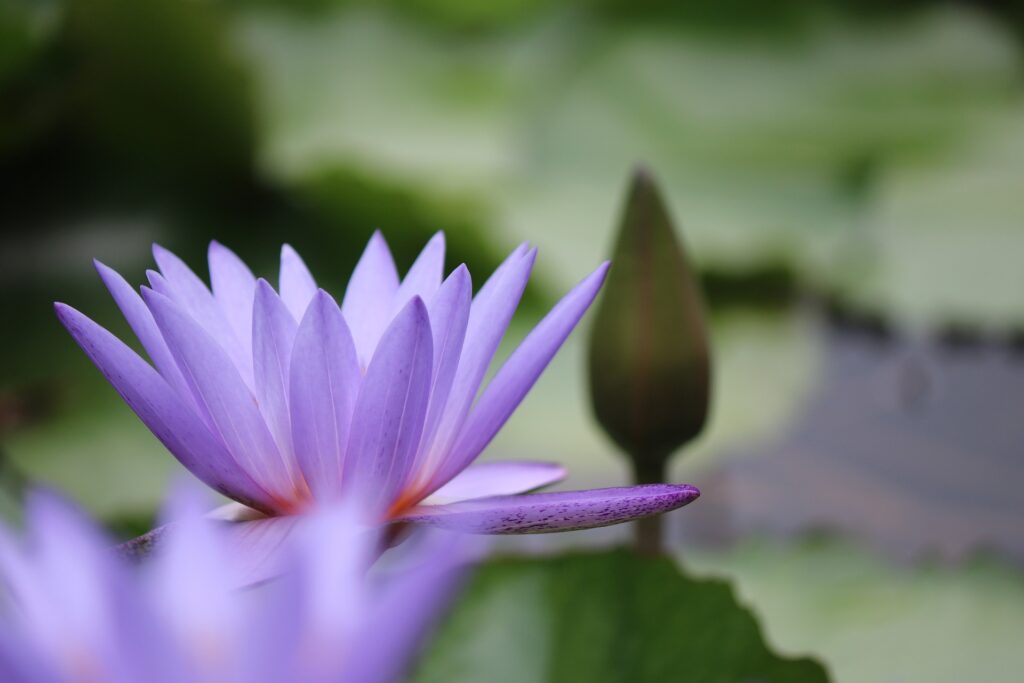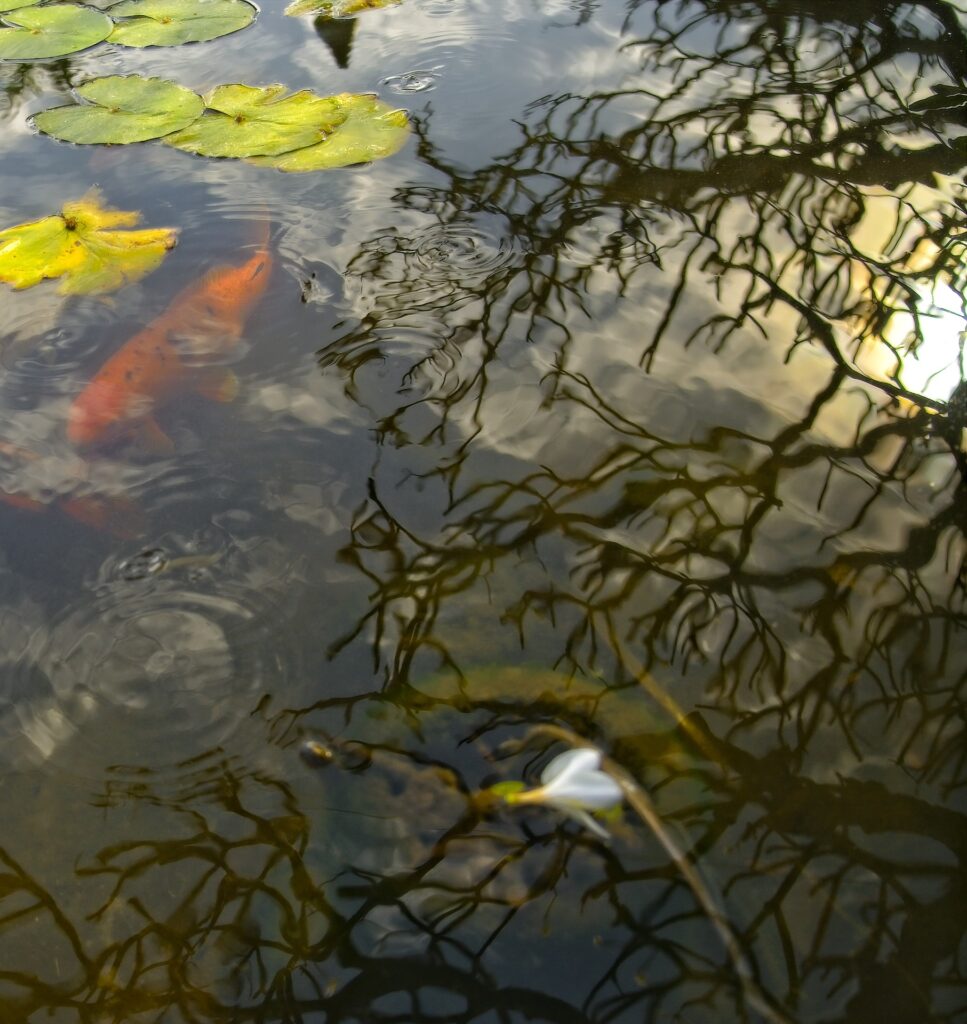If you have a pond and are contemplating getting some fish to populate it, the question of whether or not, should pond fish be fed everyday is likely to be on your mind. After all, you want your finned friends to thrive and be healthy, but feeding them too much can lead to water pollution and potential health issues.
So, should pond fish be fed every day? Let’s explore this common dilemma and find the best approach to keep your aquatic residents happy and healthy.

1. Understanding the feeding habits of pond fish
Importance of understanding feeding habits
Understanding the feeding habits of pond fish is essential for maintaining their overall health and well-being. By understanding their dietary requirements and feeding patterns, you can provide them with the necessary nutrients they need to thrive. This knowledge also enables you to ensure that they receive the appropriate amount of food, preventing overfeeding or underfeeding.
Differences in feeding requirements
Different species of pond fish have varying feeding requirements. Some fish are herbivores, primarily consuming plant matter, while others are carnivores, relying on a diet rich in protein. Understanding the specific dietary needs of your pond fish is crucial in order to provide them with the appropriate food sources.
Factors affecting feeding habits
Feeding habits can be influenced by a variety of factors. Environmental conditions, such as water temperature and availability of natural food sources, can impact the feeding behavior of pond fish. Additionally, the size, age, and activity levels of the fish can also influence their feeding habits. By taking these factors into consideration, you can better understand and meet the feeding needs of your pond fish.
2. The impact of feeding frequency on pond fish
Effects on fish health
Feeding frequency plays a significant role in the overall health of pond fish. Providing them with regular and balanced meals ensures that they receive the necessary nutrients for growth, immune function, and reproduction. Regular feeding can also help prevent malnutrition and deficiencies that can lead to various health issues.
Risk of overfeeding
Overfeeding is a common concern when it comes to feeding pond fish. Excessive food can lead to obesity and other related health problems. Overfed fish may suffer from reduced mobility, decreased oxygen intake, and compromised organ function. It is important to avoid overfeeding by carefully monitoring the amount of food given to your pond fish.
Balancing nutritional intake
Feeding fish daily allows you to provide a balanced diet that meets their nutritional requirements. This includes a combination of proteins, carbohydrates, fats, vitamins, and minerals. By providing a varied diet, you can ensure that your pond fish receive all the necessary nutrients for optimal health and growth.
Avoiding water pollution
Feeding frequency also affects water quality in your pond. Overfeeding can lead to an accumulation of uneaten food, which in turn can result in water pollution. Decomposing food particles increase organic waste and nutrient levels, leading to poor water quality and harmful algal blooms. Feeding pond fish daily, but in appropriate quantities, helps maintain good water quality and prevent pollution in your pond.
3. Considerations for feeding pond fish daily
Types of fish species
Different fish species have specific feeding requirements. Some species, like koi and goldfish, are omnivorous and can thrive on a varied diet of plant matter and protein. Others, such as African cichlids, have specific dietary needs and may require specialized food. It is crucial to understand the particular feeding habits of the fish species in your pond to provide them with suitable nutrition.
Size and age of the fish
Feeding habits can change as fish grow and mature. Younger fish typically require more frequent meals to support their rapid growth and development. As they age and reach adulthood, their feeding frequency may decrease. It is important to adjust the feeding routine based on the size and age of your pond fish to ensure they receive adequate nutrition.
Environmental conditions
Environmental factors like water temperature and seasonal changes can influence the metabolism and appetite of pond fish. During warmer months, fish may have higher activity levels and increased metabolic rates, requiring more frequent feedings. Conversely, in colder temperatures, their metabolism slows down, and they may eat less. Understanding these environmental factors and adapting the feeding schedule accordingly can help maintain the health of your pond fish.
Availability of natural food sources
Pond fish have access to natural food sources within their environment, such as insects, algae, and other aquatic organisms. These natural foods contribute to their overall nutritional intake. It is important to consider the availability of these natural food sources when deciding on the frequency of feeding. If your pond has an abundance of natural food, you may need to adjust the feeding schedule accordingly.
Fish activity levels
The activity levels of pond fish can also affect their feeding habits. Highly active fish may require more frequent meals to meet their energy demands, while less active fish may need fewer feedings. Monitoring their activity levels and adjusting the feeding routine accordingly can help ensure that your pond fish are getting the appropriate amount of food.
4. Benefits of feeding pond fish daily
Promoting growth and development
Feeding pond fish daily with a balanced diet promotes healthy growth and development. By providing them with regular and nutritious meals, you are ensuring that they receive the necessary energy and nutrients to reach their full potential. Adequate feeding supports the development of strong muscles, bones, and organs, allowing fish to thrive in their environment.
Enhancing coloration
Proper nutrition plays a significant role in enhancing the coloration of pond fish. Many fish species display vibrant and beautiful colors, which can be intensified through a healthy diet. Incorporating high-quality and varied fish food can enhance the pigmentation and overall color vibrancy, making your pond fish a stunning sight to behold.
Creating a bond with fish
Feeding pond fish daily allows for regular interactions and can help create a bond between you and your fish. As they become accustomed to your presence during feeding time, they may approach you more readily and become more comfortable with human interaction. This bond can enhance your overall enjoyment and connection with your pond fish.
Observing fish behavior
Feeding pond fish daily provides an opportunity to observe their behavior closely. By monitoring their feeding habits, you can gain insights into their overall health and well-being. Any changes in appetite or feeding behavior may indicate underlying health issues, and detecting these changes early on allows for timely intervention and treatment.
5. Risks and drawbacks of daily feeding
Increased waste production
Feeding pond fish daily increases the amount of waste they produce. Excessive food that is not consumed adds to the organic load in the pond, leading to an accumulation of uneaten food particles. This can contribute to poor water quality and the growth of harmful bacteria. Regular maintenance, such as water testing and filtration, is crucial to mitigate the risks associated with increased waste production.

Water quality deterioration
Improper feeding practices can negatively impact water quality in your pond. Overfeeding results in increased nutrient levels, leading to algae blooms and poor water clarity. It can also affect the dissolved oxygen levels in the water, posing a risk to the overall health of pond fish. Maintaining a balance between feeding frequency and the amount of food given can help prevent water quality deterioration.
Dependency on human feeding
Daily feeding can create a dependency on human-provided food for pond fish. They may become less motivated to forage for natural food sources within the pond. This reliance on artificial feed can make them vulnerable if there are disruptions in the feeding routine. Encouraging natural feeding behaviors by supplementing their diet with live food can help maintain their ability to find food independently.
Disruption of natural feeding behaviors
Overfeeding and providing daily meals can disrupt the natural feeding behaviors of pond fish. In their natural habitat, fish are opportunistic feeders, relying on instinct and environmental cues to find food. Frequent feeding can alter their foraging behavior and may lead to a decrease in their ability to locate and consume natural food sources. It is important to strike a balance between artificial feedings and encouraging natural feeding behaviors.
6. Alternative feeding approaches
Feeding schedules
Establishing a feeding schedule can help maintain a consistent routine for your pond fish. Instead of providing daily meals, you can opt for feeding them on specific days and times. This approach allows you to regulate the amount of food they receive and can reduce the risks associated with daily feeding.
Combining natural feeding and artificial feed
A balanced approach to feeding involves providing both artificial feed and allowing pond fish to forage for natural food sources. By supplementing their diet with live food, such as insects or small crustaceans, you can stimulate their natural feeding behaviors. This approach ensures that they receive proper nutrition while still engaging in their instinctual hunting and foraging activities.
Using automatic feeders
Automatic feeders can be a convenient solution for maintaining a consistent feeding routine. These devices can dispense pre-measured portions of fish food at specific intervals throughout the day. Automatic feeders eliminate the need for manual feeding and can help prevent overfeeding. However, careful monitoring is still necessary to ensure that the fish are not solely reliant on the automatic feeder and are still engaging in natural feeding behaviors.
Supplementing with live food
To enhance the natural feeding behaviors of pond fish, supplementing their diet with live food can be beneficial. Live food options, such as brine shrimp or mealworms, provide variety and additional nutrients. Incorporating live food into their diet can help maintain their hunting instincts and ensure a well-rounded nutritional intake.

7. Monitoring fish health and feeding behavior
Observing fish appetite
Regularly observing your pond fish during feeding times allows you to monitor their appetite and eating behavior. A loss of appetite or reluctance to feed may indicate potential health issues that require attention. Conversely, increased aggression during feeding can also be a sign of underlying stress or territorial behavior. Being attentive to their feeding behavior aids in early detection of any changes or abnormalities.
Checking weight and body condition
Regularly checking the weight and body condition of your pond fish provides further insights into their overall health. Significant weight loss or gain, abnormal body shape, or visible signs of malnutrition should prompt further investigation. These observations can help identify if the feeding frequency or diet needs to be adjusted to ensure optimal health and well-being.
Monitoring water quality parameters
In addition to observing fish health, regularly monitoring water quality parameters is essential. As mentioned earlier, overfeeding can result in poor water quality, which can negatively impact fish health. Regular testing of parameters such as ammonia, nitrite, nitrate, and pH levels will help identify any imbalances and allow for corrective actions if necessary.
Identifying signs of overfeeding or underfeeding
By closely monitoring the behavior, health, and weight of your pond fish, you can identify signs of overfeeding or underfeeding. Fish exhibiting bloating, floating at the surface, or experiencing swim bladder issues may be overfed. On the other hand, fish displaying lethargy, emaciation, or other signs of malnutrition may be underfed. Adjusting the feeding routine based on these observations is crucial to maintaining their health and well-being.
8. Consulting experts and professionals
Seeking advice from pond specialists
When in doubt about the feeding habits of your pond fish, it is always beneficial to seek advice from pond specialists. These professionals have extensive knowledge and experience in working with different fish species and can provide valuable insights tailored to your specific needs. They can offer guidance on feeding routines, food types, and any other concerns you may have regarding the well-being of your pond fish.
Consulting aquatic veterinarians
For specific health-related concerns, consulting an aquatic veterinarian is highly recommended. Aquatic veterinarians specialize in the care and treatment of aquatic animals and can provide expert advice on feeding practices, disease prevention, and general fish health. They can assess the overall condition of your pond fish and provide appropriate recommendations to ensure their long-term well-being.
Joining fishkeeping communities
Joining fishkeeping communities and forums can be a valuable source of information and support. These communities provide an opportunity to connect with other pond enthusiasts and share experiences and knowledge. Engaging in discussions and asking questions can help you gain insights from experienced individuals and learn from their practices.
Attending seminars and workshops
Attending seminars and workshops on pond fishkeeping can be an excellent way to enhance your knowledge and stay up to date with the latest research and techniques. These events often feature experts in the field who share their expertise and provide practical advice. Taking advantage of such educational opportunities can help you make informed decisions regarding the feeding habits and overall care of your pond fish.

9. Tailoring feeding frequency to individual pond fish
Experimentation and observation
Each pond fish is unique, and what works for one may not work for another. As a fishkeeper, it is important to experiment with different feeding routines and observe the response of your fish. Pay attention to their appetite, growth, and overall behavior to determine the ideal feeding frequency that suits each individual fish’s needs.
Adjusting feeding routines
Feeding routines may need to be adjusted as your pond fish grow and their dietary requirements change. Younger fish may initially require more frequent feedings to support their rapid development, while adult fish may thrive with fewer meals. Regularly reassessing and adjusting the feeding routine based on the changing needs of your pond fish will help ensure their optimal health and development.
Keeping records of feeding behavior
Keeping accurate records of your fish’s feeding behavior can provide valuable insights over time. These records can help you identify patterns, track growth and development, and measure the effectiveness of different feeding approaches. By maintaining detailed records, you can make informed decisions and continually improve the feeding routine for your pond fish.
10. Conclusion
Balancing the needs of pond fish involves understanding their feeding habits, considering their dietary requirements, and monitoring their health and behavior. Feeding pond fish daily can promote their growth and enhance their coloration, providing numerous benefits for fishkeepers. However, it is crucial to avoid overfeeding, maintain water quality, and encourage natural feeding behaviors. By tailoring the feeding frequency to suit the needs of your individual pond fish, you can ensure their long-term health and sustainability in your pond.
Should Pond Fish Be Fed Everyday
Overall, it is very important to always seek advice from experts, monitor their health and feeding behavior, and make adjustments based on observation and experimentation. This will help you provide the best care for your beloved pond fish.
If we can help you with any further information, please check out our other informational posts, which cover most subjects. One of particular interest on this subject would be ‘What Is The Ideal Pond Ecosystem‘, as this covers the actual Pond and what you should hope to achieve when keeping one.
